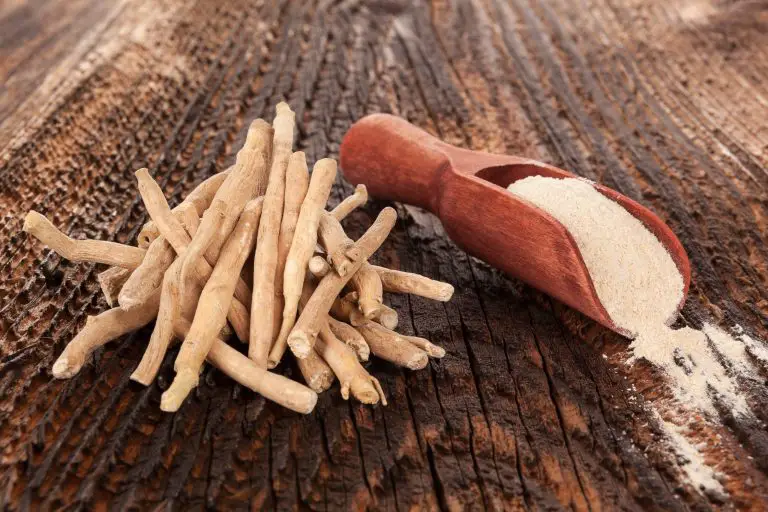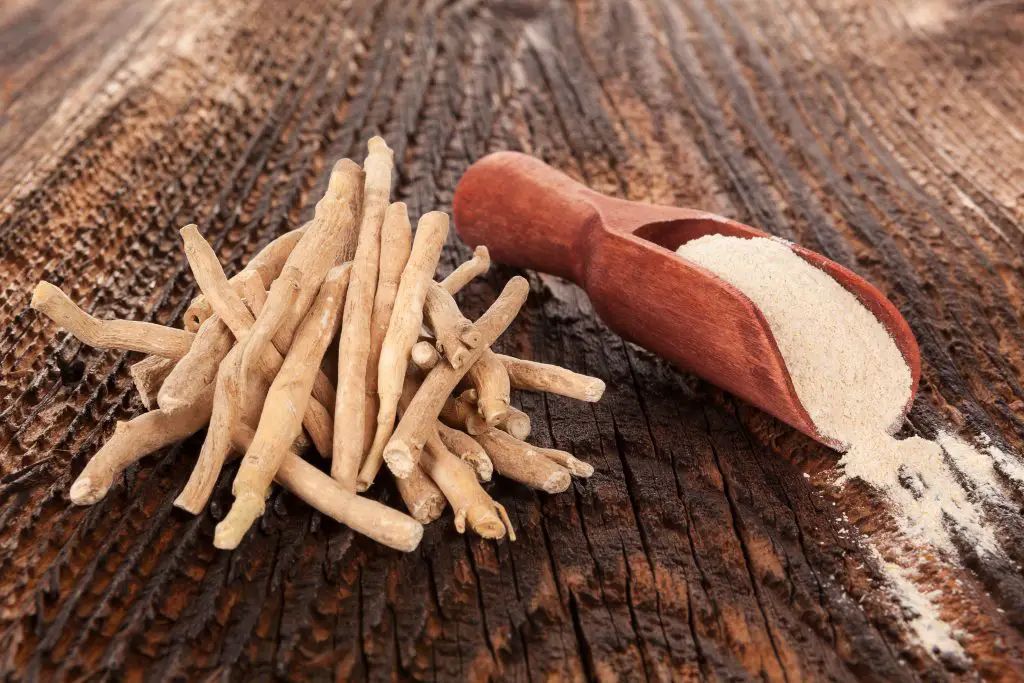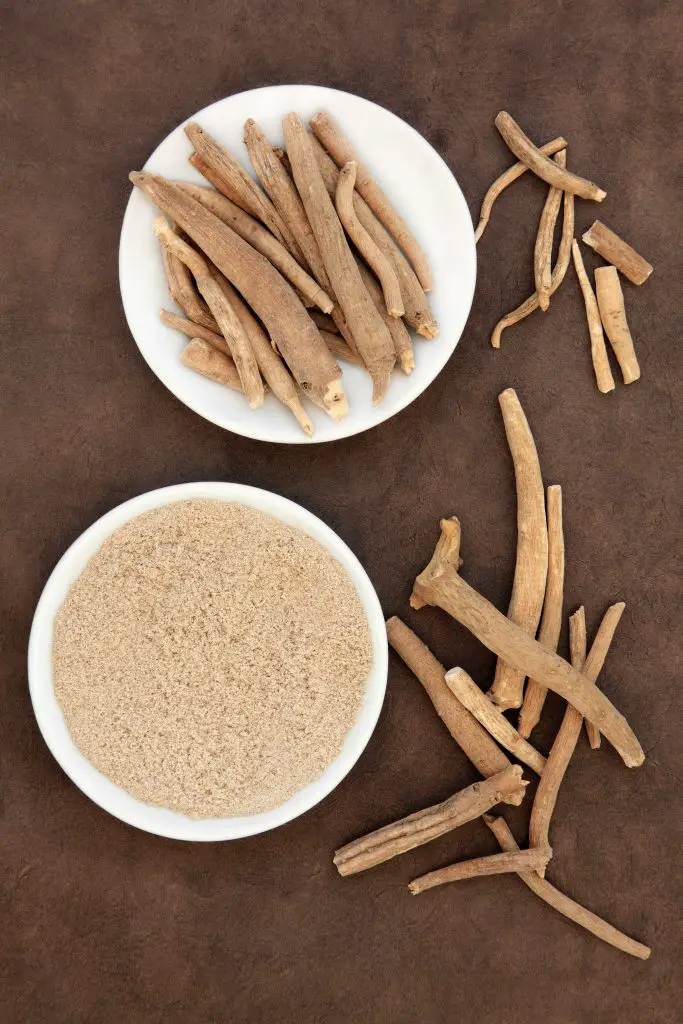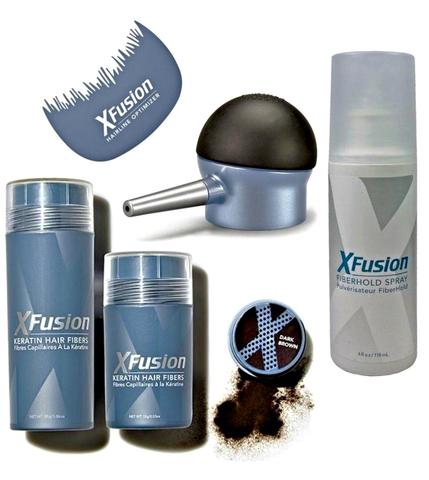
Page Contents
Some of the best things for your hair growth can sound quite strange. It’s doubtful that you’ve heard about Ashwagandha. But, this plant can be a huge help if you’re trying to encourage hair growth.
What Is Ashwagandha?
Ashwagandha is a plant that has a few different names. Some of these names include Indian Ginseng, Winter Cherry, and even Poison Gooseberry. That last one isn’t because the berry is actually poisonous, but because it’s in the nightshade family.
Its scientific name is Withania Somnifera.
Ashwagandha is a combination of two words from Sanskrit. One means horse. The other refers to smell. The root has a strong odor that smells like a horse. The second part of its Latin name, Somnifera, means “sleep-inducing.” It’s called this because of that particular quality.
In size, the perennial shrub grows to around 14” to 30” tall. It has branches that come out of a central stem. The leaves are dull green and about 4” to 5” in length. This plant has both flowers and fruit. The flowers are small and shaped like bells. They tend to be yellowish-green. The fruit is orange-red when it is ripe.
The Ashwagandha plant is grown mostly in the drier areas of India, Nepal, and China. Though, sometimes it’s grown in other places like Yemen. This is because it likes dry, stony soil with very little shade.
Despite the name of Poison Gooseberry, almost all parts of this plant can be used medicinally. This includes the berries, leaves, and the roots.
Most often when you buy it, you’ll get a pill or a powder form which contains the root and maybe some leaves. Though, you can find things that have the berry in them as well.

How Can Ashwagandha Help With My Hair Growth?
Ashwagandha is most often used to generally increase your energy, endurance, and overall health. It has a wide variety of benefits, however, more than one of which is closely related to your hair growth and which can help your hair to be healthier and thicker.
The first thing that you should know about this plant is that it has great antioxidant properties in it. Antioxidants destroy bad things like free radicals in your body and then work to protect it and help it repair itself as well.
Free radicals are one of the things that make you age, including getting grey hairs, so getting rid of these out of your body alone can help your hair grow better and postpone greying hairs. This also reduces stress on your body and frees up your organs to focus on other things such as growing your hair and giving you more energy.
As mentioned, ashwagandha also has some sleep properties to it, helping you to sleep soundly and feel like you are well-rested when you wake up. This helps your body in so many ways, gives you more energy, and helps you to concentrate when you are awake.
What’s the best thing about this plant?

The thing that this plant is the best at, however, is helping your scalp by strengthening the roots of your hair and by helping your scalp to hold on to your hair. One of the main causes that can sometimes thin out your hair is stress, and this herb does a great job of combating that in multiple ways too.
Other things that this plant can do are to help stabilize your blood sugar if you have diabetes and that it can also reduce pain and swelling if you suffer from arthritis. While these things might not directly help with your hair growth, you should keep in mind that the less your body has to deal with that the more it can focus on other things like thickening your hair.
How Should You Use It And What Are Some Possible Concerns?
Ashwagandha is most often taken as a supplement, however, it can also be used in hair oils and in herbal shampoos. While this can help with dandruff and increase the circulation to your scalp, it cannot help to get rid of the free radicals in your body unless you take in internally.
There are two ways to take it internally: either you can get it in capsule form and take it as a pill or you can get it in powder form and put it in your smoothie or food, not on an empty stomach. It does have a noticeably bitter taste though, so you may prefer the capsule.
When taking it as a powder, take ¼ to 1 tsp once or twice a day. Start with the ¼ tsp and then gradually increase the amount to the full tsp. When taking it as a pill, start with one a day. Then, if you want to you can go up to two a day.
Like other supplements from potent herbs, don’t take Ashwagandha on a continuous basis for more than a few months. It is best to take it daily for 2 to 4 months and then have a gap of a whole month without taking it at all.
On this same note, don’t take Ashwagandha if you’re pregnant. Also avoid it if you have problems with other nightshade plants like tomatoes, pepper, or potatoes. In some cases, this herb can take its hair growing a little too far. It can lead to overgrowth of your facial hair since it does boost testosterone levels. This is another reason why it is important not to take too much of it.
One final note:
Finally, if you have any other health issues that you take medication for then you should take this into consideration. As mentioned, one of the things that this plant can do is to stabilize your blood sugar. So, if you are taking medication for this, Ashwagandha supplements may cause problems with your blood sugar.
Tired of chasing down hair growth solutions without the results you’re after? Make sure you’re using the 3 hair loss products known to work before experimenting with alternative solutions – you may be surprised with how effective those 3 alone can be.






